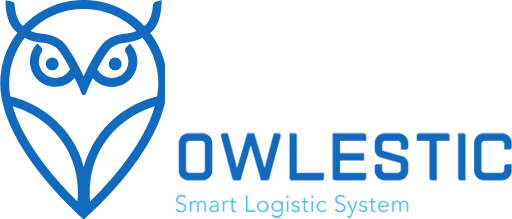Sustainability in Fleet Operations: Reducing Carbon Footprint with Telematics
28 Nov 2024As the world faces increasing environmental challenges, sustainability has become a key focus for industries across the globe, including fleet management. Businesses are under growing pressure to reduce their carbon footprint and adopt eco-friendlier practices. Telematics technology is playing a crucial role in helping fleet operators achieve sustainability goals by optimizing vehicle performance and reducing emissions. Owlestic, with its advanced fleet management software, offers businesses the tools they need to monitor and reduce their environmental impact.
The Environmental Impact of Fleet Operations
Fleet operations contribute significantly to carbon emissions, particularly due to fuel consumption and inefficient vehicle use. According to the International Transport Forum (ITF), road transport is responsible for nearly 20% of global CO2 emissions. For businesses with large fleets, managing these emissions is essential not only for environmental reasons but also to comply with stricter regulations and meet sustainability targets.
Fleet operators are increasingly seeking solutions to improve fuel efficiency, reduce emissions, and operate more sustainably. This is where telematics technology becomes indispensable.
How Telematics Contributes to Sustainability
Telematics systems, like Owlestic’s, provide fleet operators with the tools needed to monitor and optimize various aspects of fleet operations, significantly reducing their environmental impact:
1. Fuel Efficiency Optimization:
Telematics systems allow fleet managers to track fuel consumption in real-time. By identifying patterns such as excessive fuel usage during idle times or inefficient driving behaviors (e.g., harsh acceleration), businesses can make adjustments that reduce fuel waste and improve overall efficiency. Studies show that optimizing fuel consumption can lead to a 10-15% reduction in fuel usage, which directly reduces carbon emissions.
2. Route Optimization:
Route planning is another critical factor in reducing fuel consumption and emissions. Telematics technology helps fleet managers plan the most efficient routes based on real-time traffic data, weather conditions, and vehicle performance. This reduces unnecessary miles driven, lowers fuel consumption, and minimizes emissions.
3. Eco-Driving Coaching:
Telematics systems like Owlestic provide valuable insights into driver behavior, including speed, braking patterns, and idling time. With this data, businesses can implement eco-driving programs that encourage drivers to adopt more fuel-efficient and environmentally friendly driving habits. Drivers can be coached to avoid hard braking, reduce speed on highways, and limit idling time, which can significantly reduce emissions.
5. Vehicle Maintenance and Health Monitoring:
A well-maintained vehicle operates more efficiently and produces fewer emissions. Telematics systems monitor vehicle health and can alert fleet managers when maintenance is required, such as engine diagnostics or tire pressure checks. Preventative maintenance ensures that vehicles are running at peak performance, which directly impacts fuel efficiency and emissions.
Owlestic's Telematics Solutions for Sustainability
Owlestic's fleet management software is designed to help businesses reduce their carbon footprint while improving operational efficiency. The platform integrates key sustainability features:
1. Real-Time Fuel Monitoring:
Owlestic’s system tracks fuel consumption in real-time, helping businesses identify inefficiencies and take action to reduce fuel waste.
2. Automated Maintenance Alerts:
Owlestic sends automated alerts for vehicle maintenance, ensuring that all fleet vehicles are running efficiently, minimizing the risk of breakdowns, and optimizing fuel consumption.
3. Route Optimization Tools:
Owlestic’s software helps businesses plan the most efficient routes, reducing fuel usage and emissions while improving delivery times and reducing congestion.
4. Driver Behavior Analytics:
By providing detailed analytics on driver behavior, Owlestic enables businesses to implement eco-driving strategies that encourage fuel-saving driving practices and reduce environmental impact.
The Benefits of Sustainability in Fleet Operations
- Cost Savings: Reduced fuel consumption and fewer maintenance issues translate into lower operational costs. Businesses can see significant savings while contributing to a greener environment.
- Regulatory Compliance: With increasing environmental regulations and standards, businesses can ensure compliance by using telematics to meet sustainability targets and reduce emissions.
- Brand Image and Customer Loyalty: Companies that prioritize sustainability enhance their brand image and appeal to environmentally conscious customers. Customers are increasingly choosing businesses that demonstrate a commitment to reducing their environmental impact.
Conclusion
Sustainability is no longer just a buzzword; it is a necessity for businesses aiming to reduce their carbon footprint and meet regulatory requirements. Telematics systems, like Owlestic, provide a comprehensive solution for fleet operators to optimize fuel consumption, reduce emissions, and improve efficiency. By adopting these technologies, businesses can not only contribute to a cleaner environment but also achieve cost savings and improve their operational performance.
